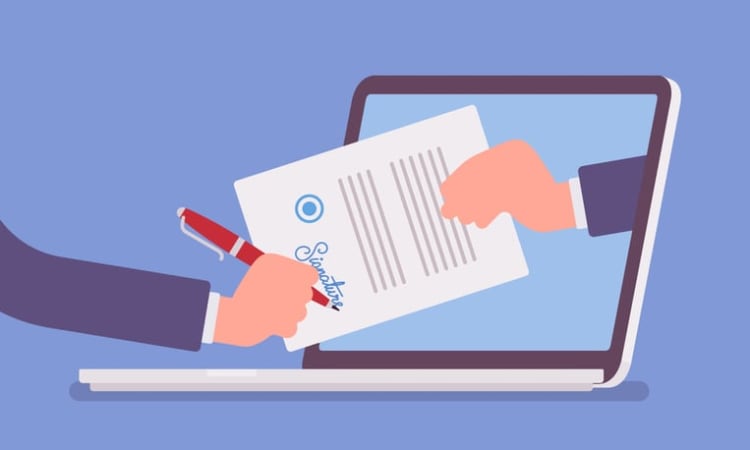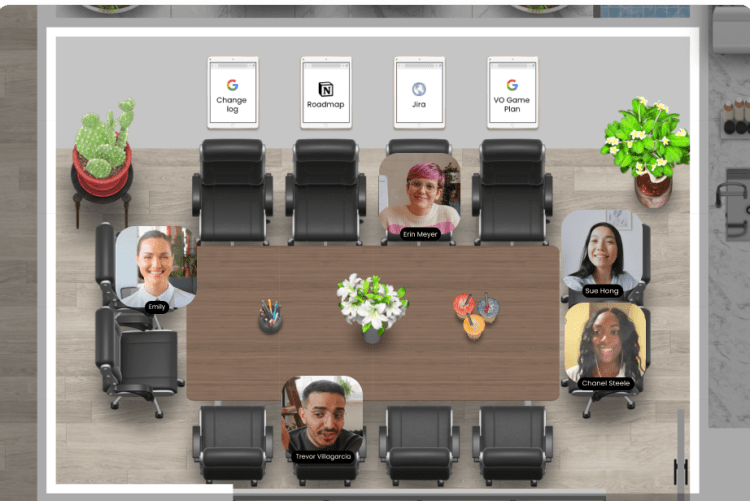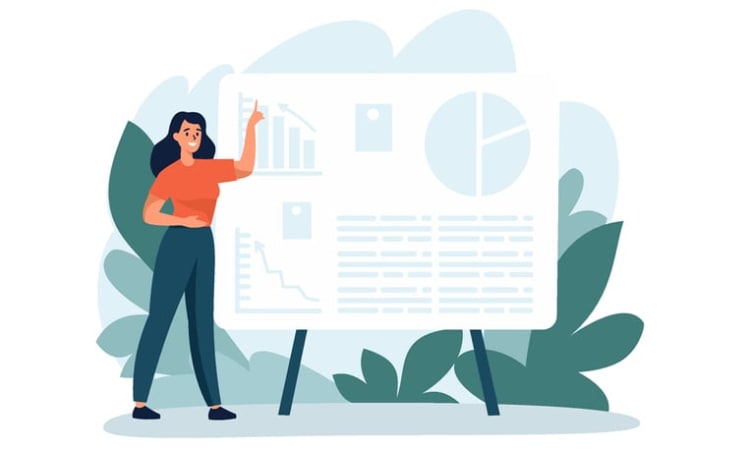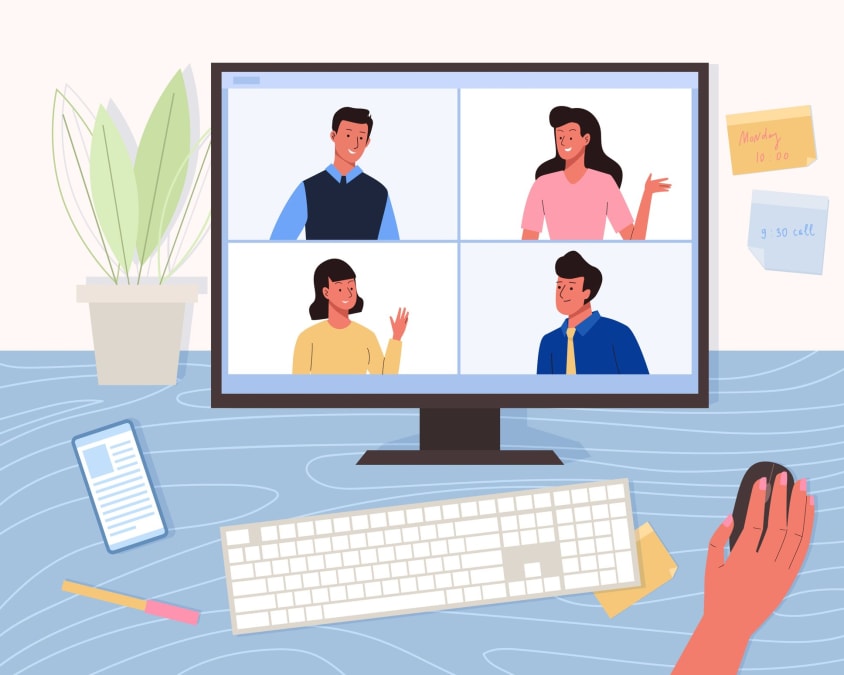If you've been hearing buzz about remote closing jobs or wondering "what is remote closing, exactly?" you're not alone. This approach to sales has completely transformed how deals get done, opening doors for both businesses and professionals that simply didn't exist a decade ago.
Think about it: you no longer need to be in the same room, or even the same country, as your client to close a deal. Thanks to digital tools and platforms, remote closing has evolved from a nice-to-have backup plan into a legitimate, highly effective way to do business. And for sales professionals, it's created a whole new category of career opportunities in remote closing that offer flexibility, earning potential, and the chance to work with clients anywhere in the world.
Whether you're a business owner looking to expand your sales capabilities or a professional curious about breaking into remote closing jobs, understanding how this works is crucial. This guide will break down everything you need to know, from what remote closing actually involves to the tools that make it possible and the step-by-step process for closing deals successfully, no matter where you or your clients are located.
Key takeaways
- Navigating Remote Closing requires strong communication, negotiation skills, and digital proficiency.
- Remote closers must possess communication, emotional intelligence, strategic thinking and problem-solving skills to successfully close deals.
- The Remote Closing Academy provides an invaluable pathway for developing the knowledge and skill set needed to excel in remote closing roles.
Navigating the remote closing landscape

Recent years have seen significant growth in the remote closing industry, driven by technological advancements and businesses adapting to a more digitized environment. Remote closing is no longer limited to a specific sector or niche; it has become an essential part of the sales process across various industries, from real estate transactions to high-ticket offerings. This growth has triggered a rise in remote closing positions, giving professionals the chance to work flexibly from any location and providing companies with a broader talent base.
Remote closing is not merely a trendy term; it necessitates strong communication, negotiation skills, and digital proficiency for successful deal closures. As a remote closer, your role involves:
- Offering a tailored experience to your clients
- Using technology to enable virtual sales completion
With appropriate tools and training, you can thrive in this burgeoning field and assist businesses in expanding their global reach.
Understanding remote closing
Remote closing refers to the process of finalizing deals and transactions online using digital tools, without the need for the parties involved to be physically present. This approach has transformed the traditional sales process, making it more flexible, cost-effective, and convenient for both businesses and clients. As a remote closer, your job is to guide clients through the closing process, manage documentation, and ensure compliance with laws and regulations.
The core of remote closing involves establishing connections with prospective customers, grasping their needs, and convincing them to make a purchase, all without physical proximity. This requires a reliable internet connection, the use of digital notary and e-signature tools, and the ability to communicate effectively through video conferencing and virtual meeting spaces, such as Kumospace. Equipped with the appropriate skills and tools, remote closers have the ability to successfully close deals, even under the most difficult conditions.
The growth of remote closing jobs
The rise in remote closing positions, including the most remote closing positions, is due to the growing necessity for businesses to adjust to a digital environment and reach customers worldwide. Companies are recognizing the benefits of remote closing, such as reduced overhead costs, increased flexibility, and access to a larger pool of talent. This has resulted in an increase in remote closing roles across diverse sectors, ranging from sales and customer service to telemarketing.
As a remote closer, your job is to navigate the sales process, connect with warm prospects, and ultimately close deals in the realm of inbound sales. Many remote closers operate on a commission-based system, tying earnings directly to their performance. A base salary is often offered to new employees, in addition to commission. This way, they have a steady income while learning the new role. With proper training and resources like the Remote Closing Academy, you can develop the necessary skills to thrive in this burgeoning field and increase your earning potential.
The role of a remote closer in today's market

Understanding what is remote closing and why it matters can give you a serious competitive edge. Remote closers play a crucial role in making online transactions happen smoothly while keeping everything legally compliant and above board. As more companies embrace digital platforms and remote work becomes the norm, remote closing jobs have gone from niche positions to essential roles across industries.
So what does someone in remote closing actually do? They guide clients through the entire closing process, handle all the documentation, answer questions, and troubleshoot issues as they come up, all without ever meeting face-to-face.
If you're considering remote closing jobs, here are the skills that separate the good from the great:
- Strong communication that builds trust through a screen
- Negotiation abilities that close deals effectively
- Problem-solving skills to handle unexpected obstacles
- Adaptability to work with different clients and situations
- Tech savvy to navigate digital tools with confidence
When you combine these skills with the right technology and approach, remote closing becomes not just possible but highly effective. The best remote closers use these abilities to overcome the unique challenges of working remotely while delivering outstanding results for both their clients and their companies.
Daily duties of remote closers

Remote closers handle diverse daily duties, including communicating with clients, negotiating deals, and managing related paperwork. These professionals need to be proficient in using digital tools and platforms, such as video conferencing and e-signature solutions, to conduct their work effectively.
One of the platforms best for remote closing is Kumospace. Its customizable virtual spaces empower users to design immersive environments tailored to their specific needs, fostering a sense of connection that goes beyond standard video calls. The spatial audio feature recreates the natural dynamics of in-person conversations, allowing for seamless communication and collaboration. Dynamic proximity ensures that participants can engage with others in a lifelike manner, mirroring the organic flow of face-to-face interactions. With its user-friendly interface, Kumospace effortlessly combines video conferencing and team chat , making it the go-to platform for those seeking a virtual meeting space that transcends the ordinary.
In addition to these core responsibilities, remote closers must also stay updated on industry-specific requirements and regulations, as well as continuously hone their skills in communication, negotiation, and problem-solving. By excelling in these daily tasks, remote closers can guarantee a seamless and successful closing process for their clients and companies.
Skill set for success
A successful remote closer possesses a unique set of skills and attributes that set them apart from their in-person counterparts. Some key skills and attributes for a remote closer include:
- Strong communication skills: Essential in a remote work environment to effectively convey messages and address client concerns.
- Emotional intelligence: Helps understand clients’ needs and tailor the approach accordingly.
- Strategic thinking: Enables remote closers to develop effective strategies to close deals and meet client objectives.
In addition to communication and emotional intelligence, remote closers must also be proficient in negotiation and problem-solving. These skills empower them to counter objections, devise innovative solutions to hurdles, and successfully close deals. By developing and refining these skills, remote closers can excel in their role and deliver exceptional results for their clients and companies.
Tools of the trade: equipping for remote sales success

Success in remote sales necessitates the utilization of a range of tools, including digital notary platforms, e-signature solutions, and video conferencing software. These tools enable remote closers to conduct their work effectively and securely, ensuring that all necessary documentation is properly signed and notarized through remote online notarization, and that clients can easily communicate with remote closers throughout the closing process.
Comprehensive knowledge of these tools is vital for remote closers, enabling them to optimize their workflow, mitigate possible complications, and uphold a high standard of professionalism. By mastering the use of these tools, remote closers can ensure a smooth and efficient closing process for their clients and companies.
Digital notary and e-signature platforms
Digital notary and e-signature platforms, also known as digital notary tools, are integral to remote closing, facilitating secure and legally binding online transactions. Digital notary platforms, such as Notarize and DocVerify, provide a secure means of notarizing documents remotely, eliminating the need for in-person meetings and streamlining the closing process. E-signature solutions, like DocuSign and Adobe Sign, allow clients to sign important documents electronically, ensuring the integrity and authenticity of the transaction.
Through the use of these digital platforms, remote closers can deliver a seamless and efficient closing experience for their clients, while adhering to applicable laws and regulations. Familiarity with these platforms is essential for remote closers, as it enables them to navigate the complexities of remote transactions and deliver exceptional results.
Video Conferencing and Virtual Meeting Spaces
Video conferencing and virtual meeting spaces are indispensable tools for remote closers, fostering effective communication and collaboration with clients. Platforms like Kumospace, Zoom, Google Meet, and Microsoft Teams provide a reliable means of connecting with clients, regardless of their location, making it easier for remote closers to guide them through the closing process and address any concerns that may arise.
While there is a crowded landscape of virtual meeting platforms, Kumospace stands out as the epitome of seamless collaboration and immediate communication. Kumospace offers an unparalleled blend of accessibility, heightened productivity, and streamlined communication. In an era where remote collaboration is the norm, Kumospace stands out for its user-friendly interface, making it effortlessly accessible to participants of all technical backgrounds. The platform's unique spatial design fosters a more engaging and dynamic meeting environment, reducing the fatigue often associated with traditional video calls.
Moreover, Kumospace's emphasis on accessibility extends to its robust features, facilitating seamless communication and collaboration. The customizable virtual spaces cater to diverse meeting needs, ensuring increased productivity by allowing users to tailor their environments for the optimal remote closing environment. With Kumospace, virtual meetings transcend the mundane, offering an experience that not only fosters human connections but enhances the quality of interaction, making it the ultimate choice for those seeking accessibility, productivity, and efficient communication in the world of virtual sales.
In addition to facilitating communication, video conferencing and virtual meeting spaces also provide remote closers with a platform for sharing documents, conducting presentations, and collaborating on tasks. By leveraging these tools, remote closers can ensure a smooth and efficient closing process, while also fostering trust and rapport with their clients.

Maximizing global reach through remote closing

One of the major benefits of remote closing is the opportunity to expand global reach, extending beyond geographical limits to engage a diverse group of potential clients. Remote closing allows businesses to access new markets, engage with clients in different time zones, and leverage the skills of remote closers from around the world.
To fully leverage the potential of remote closing, remote closers need to tackle time zone challenges and establish trust with clients in the virtual space. By effectively navigating these challenges, remote closers can help businesses expand their global reach and unlock new opportunities for growth.
Time zone triumphs
Tackling time zone challenges is key for remote closers aiming to expand their global reach. This involves:
- Scheduling meetings at convenient times for all parties involved
- Being adaptable to different schedules
- Utilizing tools like TimeTemperature and World Time Buddy to manage international time zone differences.
By mastering the art of time zone management, remote closers can ensure that they are always available for their clients, regardless of their location. This adaptability is essential for building trust and rapport with clients, ultimately leading to successful remote closing transactions.
Building trust virtually
Establishing trust in the virtual environment is a crucial part of remote closing, as it allows remote closers to build credibility and foster open communication with their clients. This trust serves as a foundation for successful virtual sales, fostering a sense of reliability and professionalism in all interactions.
To build trust virtually, remote closers should focus on clear communication, transparency, and professionalism. By being open about the sales process, pricing, and any potential challenges, remote closers can demonstrate their commitment to their clients and establish a solid basis for successful virtual sales.
Overcoming challenges in remote closing

Remote closing comes with its share of challenges, and it’s important for remote closers to be well-prepared to tackle these issues as they emerge. Some of the most common challenges in remote closing include navigating technical difficulties and ensuring security and compliance.
By gaining a profound understanding of the tools and best practices for remote closing, remote closers can successfully navigate these challenges and guarantee a seamless and efficient closing process for their clients and companies.
Navigating technical difficulties
Dealing with technical difficulties demands remote closers to be adept at using digital tools and resolving problems as they occur. This involves:
- Staying updated on the latest technology
- Having a reliable technical setup
- Being resourceful in addressing any issues that may occur during the closing process
By mastering the art of troubleshooting and staying agile in the face of technical challenges, remote closers can ensure a seamless and efficient closing process for their clients and companies, including remote closings.
Ensuring security and compliance
Guaranteeing security and compliance in remote closing involves the use of secure platforms, compliance with data protection regulations, and keeping abreast of industry-specific requirements. This is essential for protecting sensitive information, maintaining the integrity of the transaction, and preserving the trust and confidence of clients.
By utilizing secure platforms like Qualia and Blue Notary and adhering to relevant laws and regulations, remote closers can ensure the safety and security of their client’s information and transactions, ultimately leading to successful remote closing outcomes.
Step-by-step: the remote closing process

The remote closing process entails careful preparation and efficient execution of the closure. This includes gathering the necessary documentation, setting up virtual meeting spaces, and guiding clients through the process. By excelling in these steps, remote closers can guarantee a seamless and efficient closing experience for their clients and companies.
From generating the initial lead to signing the final documents, the remote closing process demands meticulous attention to detail and a dedication to delivering outstanding results. By adhering to a step-by-step approach, remote closers can manage the complexities of remote transactions and attain success in their role.
Preparing for the close
Preparing for the close is an essential aspect of the remote closing process, especially when it comes to closing deals. This involves:
- Gathering all necessary closing documents, such as purchase agreements, title information, loan documents, and inspection reports
- Ensuring that these documents are securely stored and easily accessible
- Setting up virtual meeting spaces, such as video conferencing platforms, to facilitate communication with clients throughout the closing process.
In addition to gathering documentation and setting up virtual meeting spaces, remote closers should also confirm client availability for the closing. This may involve sending appointment confirmation emails or arranging video conference calls to verify the client’s identity and ensure their presence during the closing process.
Executing the close
Executing the close is the final step in the remote closing process. This involves guiding clients through the process, addressing any concerns they may have, and finalizing the transaction with digital signatures and notarization. Remote closers should be well-versed in the use of digital notary and e-signature platforms, such as Notarize and DocuSign, to ensure the secure and legally binding completion of the transaction.
By effectively guiding clients through the closing process and addressing any concerns that may arise, remote closers can ensure a smooth and efficient closing experience for their clients and companies. However, not all remote closings go as planned, and this level of expertise and professionalism is essential for achieving success in the rapidly growing field of remote closing.
Remote Closing Academy: your pathway to becoming a pro

The Remote Closing Academy is a comprehensive resource for those looking to pursue a career in remote closing. Offering training programs and resources to help aspiring remote closers develop the skills and knowledge needed to succeed in the industry, the Academy provides a pathway to becoming a pro in the field.
Enrolling in the Remote Closing Academy offers the following benefits:
- Access to valuable training and mentorship
- Membership in a community of individuals with a shared passion for remote closing
- The opportunity to become proficient in remote closing and succeed in this rapidly expanding field
With the appropriate resources and support, anyone can achieve success in remote closing.
Training programs and resources
Training programs and resources for remote closers include online courses, mentorship, and access to a community of professionals for networking and support. These resources provide aspiring remote closers with the knowledge and skills needed to excel in their role and deliver exceptional results for their clients and companies.
Some of the available training programs and resources include the Remote Closing Academy, Markus Dunk’s Remote Closer Mentoring program. By leveraging these programs and resources, remote closers can enhance their skills and maximize their earning potential in the growing field of remote closing.
Summary
Remote closing has become one of the most valuable skills you can develop, whether you're a business owner or a sales professional. When you truly understand what is remote closing and master the techniques behind it, you unlock access to clients and opportunities that geography used to keep out of reach.
The demand for skilled professionals in remote closing jobs continues to grow because companies recognize the potential: faster sales cycles, lower overhead costs, and the ability to serve customers anywhere. But success in remote closing doesn't happen by accident. It requires the right training, proven tools, and ongoing support to navigate challenges, build genuine trust through a screen, and guide deals to completion smoothly.
Programs like the Remote Closing Academy exist specifically to help people develop these skills and break into this field with confidence. Whether you're looking to pivot into remote closing jobs or level up your existing sales career, the opportunity is there for the taking.
So why wait? Start your journey into the world of remote closing today and position yourself at the forefront of how modern sales gets done.
Frequently Asked Questions
A remote closing, also known as a virtual closing, is a real estate transaction where identities are verified online and all documents are signed electronically. This makes it possible to finalize new home loan and mortgage refinance transactions without an in-person meeting.
Remote closing strategy involves persuading potential customers to purchase products and services through one-on-one calls, and finalizing deals and contracts digitally. It is a pivotal strategy used by modern sales professionals to conduct business without needing face-to-face interactions.
Yes, you can make money doing remote closing. Remote closers can earn a salary that is often much higher than traditional in-person sales roles.
Remote closing can provide many benefits to industries such as real estate, high-ticket sales, and customer service.
Strong communication, negotiation, problem-solving, adaptability, and technological proficiency are essential skills for successful remote closers.





